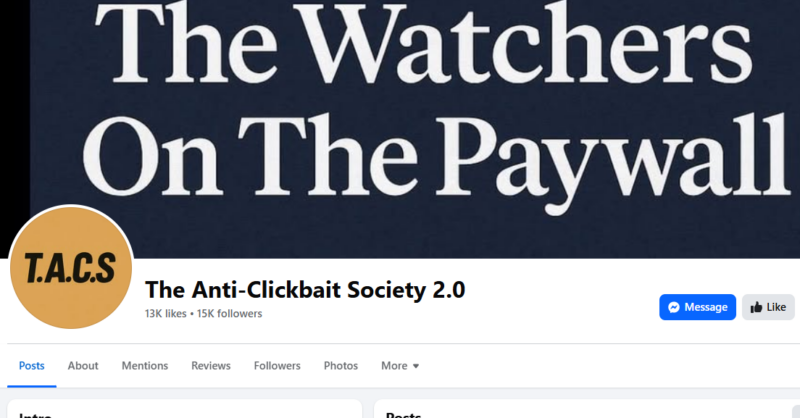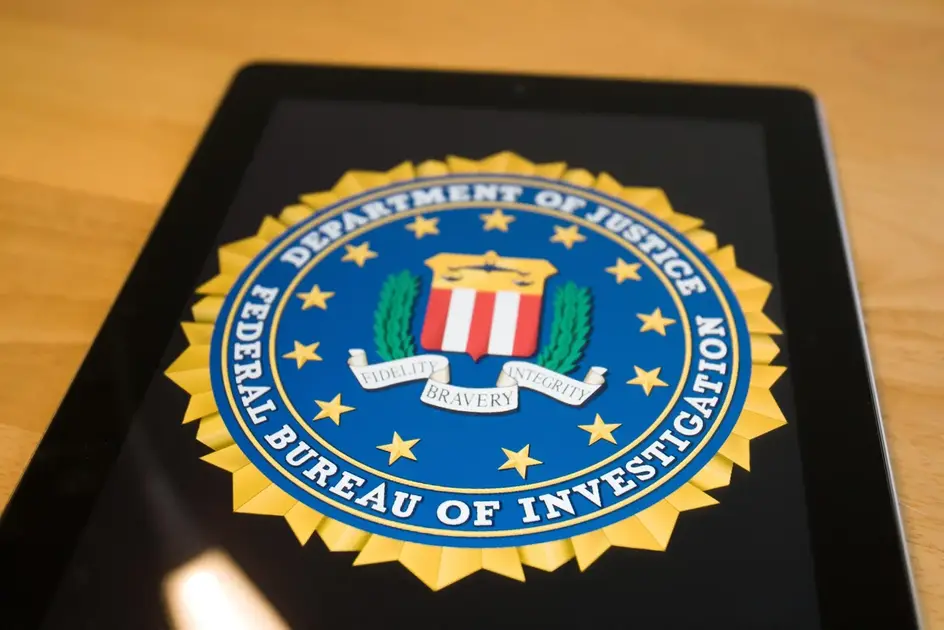T4K3.news
Anti-Clickbait Society 2.0 launched after takedown
The Anti-Clickbait Society has reappeared to challenge misleading headlines on Facebook.

The Anti-Clickbait Society 2.0 seeks to address the rise of misleading headlines online.
Anti-Clickbait Society returns to challenge misleading headlines
The Anti-Clickbait Society 2.0 has launched anew after its predecessor was taken down due to complaints from Ladbible. The original page amassed 64,000 followers before its removal for allegedly infringing on copyright by including Ladbible's logo in its posts. The founder, known as Danny, aims to highlight misleading headlines by summarizing articles without the fluff often associated with clickbait. While he has restarted the page with 16,000 followers, he faced personal costs as his own Facebook profile was also deleted. He stated that clickbait detracts from media integrity, potentially leading to a misinformed generation.
Key Takeaways
"It will lead to a generation of kids out here who don’t know what to trust."
Danny emphasizes the dangers of misinformation stemming from clickbait practices.
"The use of clickbait cheapens news, especially on social media."
Freelance journalist Patrick Ward comments on the implications of clickbait for journalism.
The return of the Anti-Clickbait Society underscores a growing frustration with the tactics used in online journalism. The founder's commitment to 'ruining clickbait's day' resonates with many who feel overwhelmed by exaggerated headlines. As media continues to oscillate between click-driven content and credible reporting, movements like this may push for a broader discussion about ethical journalism. The situation reveals how criticism of the media can itself be contentious, raising questions about creators’ rights and the balance of power between publishers and content critics.
Highlights
- Misleading headlines are ruining the integrity of the media.
- Clickbait only serves to confuse and misinform.
- This page is not just a commentary, it's a call to action.
- Empowering users to demand better journalism.
Concerns Around Copyright and Content Ownership
The situation highlights tensions between content creators and publishers regarding intellectual property rights. Ladbible's actions demonstrate that publishers are proactive in protecting their brands, which could result in backlash against critics of clickbait. This adds layers of complexity to the ongoing conversation about media ethics and content sharing.
As this dialogue continues, the fight against clickbait may shape the future of online journalism.
Enjoyed this? Let your friends know!
Related News

Call of Duty Season 5 Goes Live Tomorrow

Cheaters Emerge in Battlefield 6 Open Beta

Project Hyperion Launches Competition for Stellar Travel Designs

New movies launch this week on streaming platforms

Japan sets up task force to manage foreign resident concerns

IO Biotech melanoma trial signals strong PFS but misses primary significance

Elon Musk launches Grok 4 amid ethical concerns

Tesla's UK sales drop nearly 60% in July
